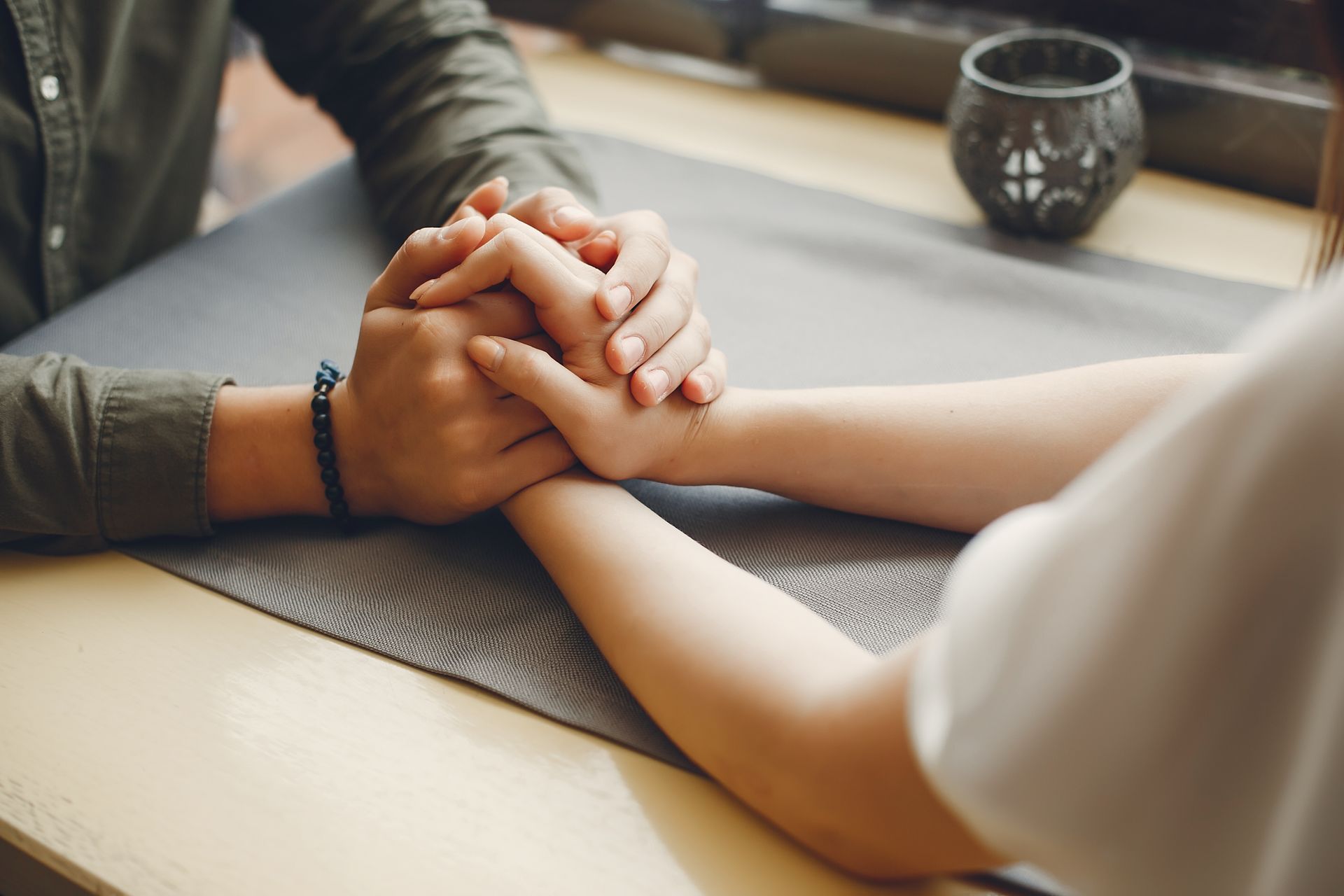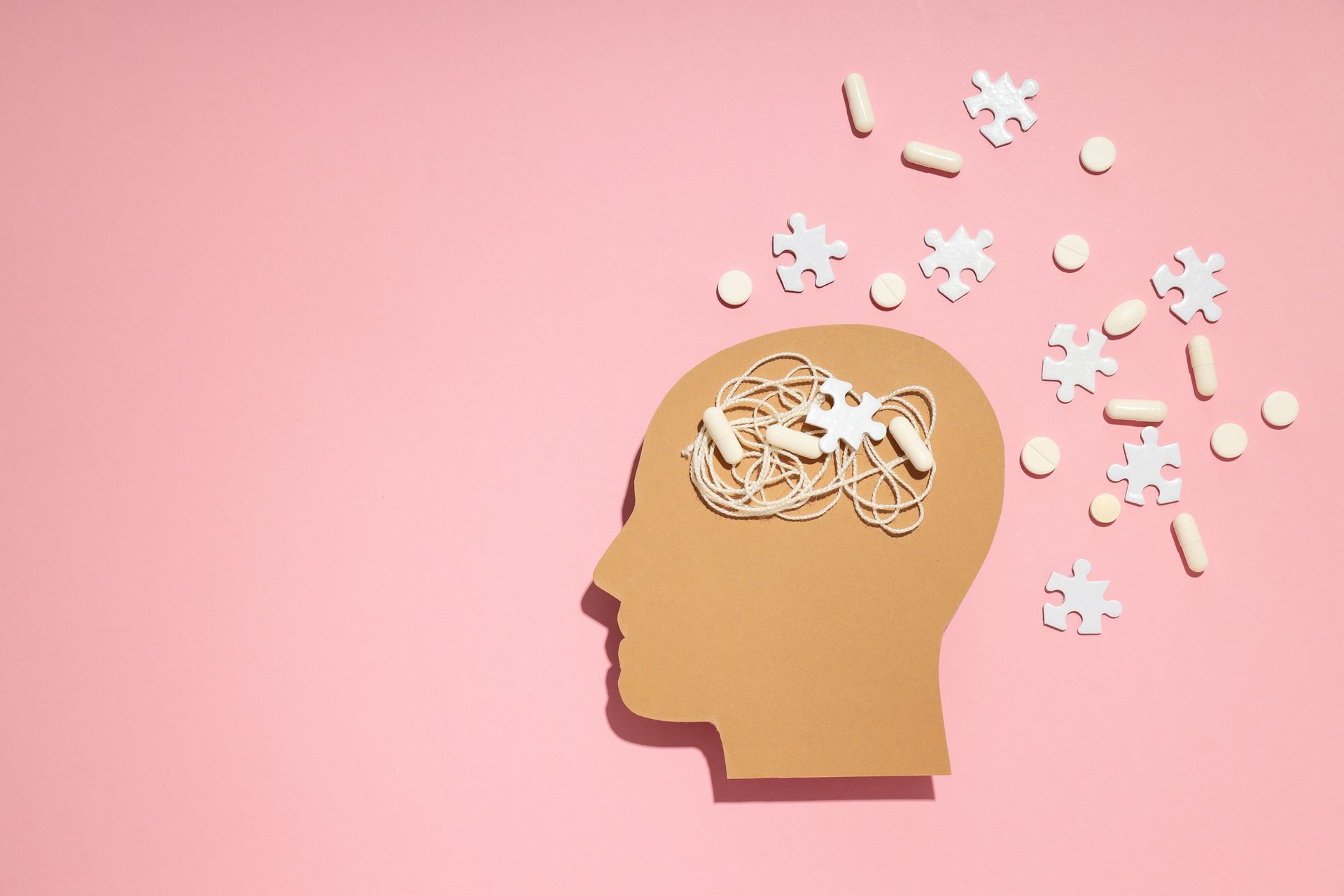10 Simple Ways to Help Combat Depression

While it seems to be a buzz word or a catch all, depression is a real diagnosis and should be taken seriously. According to Mental Health America, over 47 million Americans live with some level of mental illness, depression falling into that category. The causes and treatments are myriad, and each individual should find that path that is right for their healing process. Thankfully, research shows that treatment is available and successful. If you are noticing a change in your mood, energy, sleep or appetite, take these early and easy steps to help combat those changes.
- A Safe Person - Do you have someone you can reach out to and share how you have been feeling? This person could be a family member, a friend or a trusted health professional. If you do not have someone you are comfortable with, a good option might be a therapist, counselor, or even a coach like myself, to provide an unbiased and open ear for you.
- Nutritional Deficit - Time to check in with your physical body and make sure it is functioning optimally to help support your mental health. A large part of our energy, mood and mental capabilities are driven by "happy hormones", such as serotonin and dopamine, so it's important to make sure your body is able to produce and use them in adequate supply. Check your diet and ensure you have a good source of Vitamins and nutrients that can impact your mood and overall wellness. Vitamins such as B12 & D, also look at Omega-3's and your overall balance between protein, carbohydrates and fats in your diet. You may even benefit from working with a naturopathic doctor, who would be able to run a blood panel checking levels more thoroughly if this is an area of concern.
- Environmental - Take a look at your home, work and living spaces, as well as the outdoor environment. Is clutter in your space creating a cluttered mind? Try a small goal of removing one out of place item per day, and putting it where it needs to be. Noticing you have more difficult days during the fall and winter? Remember depressive feelings can be affected by your intake of sunlight and fresh air - find it when and where you can! If you have the financial means to hire a professional organizer or a housekeeper to come clean your home, it can make a big impact on your immediate mood.
- Situational - This is what I like to call Life Editing. Take a look at your immediate stressors in your life. Common triggers include work, finances, and personal relationships. Can you identify a person, project, place that makes you anxious or just doesn't make you feel good? If you can, remove these people/things from your life. If you cannot remove yourself completely from a stressful situation, find someone you can trust, who is not emotionally involved with the situation, to help you make a plan. It's important that you feel safe and supported while working through stressful situations. While this person could be a friend, family member or co-worker, I highly recommend finding a third party that is removed from the situation, that doesn't have emotional stake in the situation.
- Socialization - Isolation can often increase your feelings of loneliness or loss, and this can compound existing depression. Make time to gather with friends or family, or find a place that feels friendly and familiar to visit. Even the most minor socialization can make a big impact. Go to the dog park and have some small talk with another dog owner or go for a walk and say hi to your neighbors.
- Laughter - When you're feeling low, a good laugh might seem hard to come by, but it's not lost! Break out those comedies that make you laugh out loud, search YouTube for comedians, watch funny cat videos... whatever you need to do to flex that laugh muscle. Laughing is good for your entire body - it increases your oxygen, loosens your tense jaw, and floods your body with endorphins.
- Physical Activity - Start with a walk to the mailbox. Then go twice a day. Add a stretch when you get there. Try the end of the block next. Walk a dog (or borrow a friend's dog). Call a friend and make walk and talk dates. Go outside and garden, clean your bathroom, do the dishes, clean out your closet, it all counts as physical activity! There are also great, free workouts available on YouTube, such as yoga, kickboxing, or one of my personal favorites is ridiculous dance routines!
- Sleep Hygiene - This one is so underrated. The quality of your sleep can make a huge impact on the quality of your life. Make an effort to improve your sleep routine and habits. Try getting into bed at the same time every night, and wake around the same time every day. Shoot for 7-9 hours of sleep. Avoid drinking a bunch of water right before bed so you aren't waking up in the middle of the night for a wee. Avoid alcohol and caffeine before bed. Ensure your room is comfortable, cool and dark. Use a "trigger" that tells your body it is time for sleep. Popular options are soft music, white noise, aromatherapy and meditation recordings.
- Simple is Best - You don't have to do it all, you just have to start with one step. Choose one thing you can do today to improve your mental health, and celebrate doing just that one thing. You can add more when you are ready!
- Accountability Partner - Make yourself a priority! You are worth the time and effort. It's easy to let new habits and behaviors slide, so it can be helpful to have an accountability partner to check in and keep you on track. This can be a friend, co-worker, personal trainer, significant other, etc. If you are in need of an accountability person, please reach out and let's discuss ways to work together.
Overall, treat your mental health like you would your physical health. Make it a priority! Your mental health is tied directly to your physical wellbeing. Making the time to address your mental health will most always improve your quality of life and keep you happy and healthy! You are worth the time and energy.
As a reminder, if you want to consider medical intervention, check with your health care or insurance provider for options and referrals. If you have doubts about how to go about doing this, please feel free to contact me directly to help you find the resources you need.
Additional Resources that may be helpful:
https://adaa.org/ - Anxiety and Depression Association of America
https://www.helpguide.org/ - HelpGuide is an online resource designed to educate people on mental health and help people better understand how they can support their mental health. If you're feeling stressed, listen to one of its relaxing guided meditations.
National Suicide Prevention Lifeline, call 800-273-TALK (800-273-8255). Or text TALK to 741741.
*The information provided in this blog does not, and is not intended to, constitute medical advice; instead, all information, content, and suggestions are for general informational purposes only.











